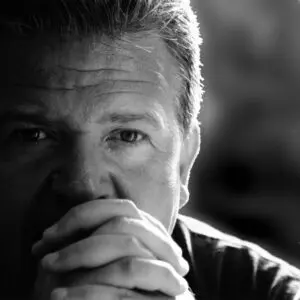AMERIKA
Rigged Trials and Tainted Justice: The Plight of the Wrongfully ConvictedApril 23, 2023
Bob Kosch
In light of the unprecedented arrest of a former United States President, many will be watching the process play out from arraignment to trial. Many – including hundreds of media outlets nationwide will monitor what the prosecution brings for compliance and strict adherence to constitutional safeguards, but what about the average citizen facing criminal charges?
In the past few years, States have created wrongful conviction units to review matters, mostly when appeals and post-conviction proceedings have terminated. In 2022, over 3200 criminal convictions were vacated, or reversed by Courts throughout the United States. Most of what led to this staggering number was the intentional misconduct or fabrication of evidence by prosecutors and police.
Why does this happen so often?
After graduation from the academy, police swear an oath to their community and the values attendant to their position as a law enforcement officer. Police and prosecutors are acutely aware that what they write in a report or testify to in open court is taken as truth. Knowing that there are those officers who stray from that allegianc
Let’s look at what has been apparent for decades to all reasonable police officers: a police officer who fabricates evidence against a criminal defendant to obtain his conviction violates the defendant’s constitutional right to due process of law.
Likewise, prosecutors are lawyers bound by the Rules of Professional Conduct to ensure fairness in presenting a case to the Courts. Still, many have abused that power-seeking wins in place of justice.
Plotting a wrongful conviction is complex and rarely advanced without the help of other investigative staff. In 1985 Byron Halsey was charged in Plainfield, New Jersey, with the murder of two small children in his care. Halsey maintained his innocence. Not only was he sleep deprived when interrogated, he took a lie detector test and passed. Two Union County Detectives wrote false reports claiming that Halsey had failed the test, stating, “Halsey began to cry, and then confessed in vague terms to killing the children.” Halsey was convicted and given two life sentences plus twenty years. Halsey spent over 20 years in custody until DNA testing proved his innocence.
In 2012 detectives in Sussex County, New Jersey, arrested a group of individuals for selling crack cocaine to an undercover informant. No drug sale was contemplated or concluded by those ultimately charged. In actuality, police packaged pieces of gypsum, or “sheetrock,” in plastic bags to falsely inculpate those charged.
On August 13, 1976, two gunmen robbed the Hi-Way Check Cashing Service in Kearny, New Jersey. One of the robbers shot and killed a Newark police officer. Defendant Vincent James Landano and three other individuals were subsequently arrested. Tried alone, Landano was convicted of murder and other related offenses. Over the next sixteen years, the defendant repeatedly challenged his convictions in both the State and Federal courts. On habeas review, the Judge Ordered the Hudson County Prosecutor’s files related to this case seized by the U. S. Marshalls. Eyewitness accounts identifying someone other than Landano were hidden prior to trial resulting in the defendant’s conviction.
The District Court found the prosecution violated the defendant’s constitutional rights by withholding exculpatory evidence. Landano was released from custody and later acquitted at retrial.
Some in law enforcement advance these practices knowing they are covered by qualified immunity, making it next to impossible to sue for liability damages.
Many released after a wrongful conviction get their “fifteen minutes of fame,” but that’s about it. There is no recovery from the torment and stress of being on death row or spending decades in prison for something you did not do. The injury is incalculable.
“He must have done something wrong” is the mantra that attaches to those exonerated after vacation of a criminal case. Many who have never been involved in a criminal prosecution simply cannot fathom that an official sworn to protect would manipulate the system to cause such devastating harm.
A short time ago, I watched a segment on CNN where Jake Tappers Dad became involved in a case where one of his patients, C.J. Rice, was criminally charged in a shooting in South Philadelphia. Convicted in 1996, Rice would be exonerated in 2019. Unfamiliar with the pitfalls of a criminal trial, Jake and his Father were stunned by what they discovered leading to Rice’s twenty-one-year challenge to his conviction.
This article is not intended to bash cops or others in law enforcement. Those brave people who protect us on a daily basis deserve courtesy and respect. Those who manipulate the criminal process to cause such devastating harm must be stopped and held accountable.
Will any of this put Donald Trump at risk? Of course not! Although we are confronted with a man – who, “if he told the truth once in his life, it was probably by mistake,” will be afforded supreme consideration of what the Rules and Constitution provide while defending his case.
The world is watching, yet daily, while others languish in jail, wrongfully accused and convicted, the chances of a “rigged” trial here are remote.
Dr. Tapper took an oath “to do no harm.” It would be nice if that sentiment caught on.

Bob Kosch
Bob Kosch is the host of Greater Good Radio and Sunday Supper with Vito on WOR in New York City. He is also the Executive Producer of “When Comedy Went to School” on PBS.
No comments:
Post a Comment